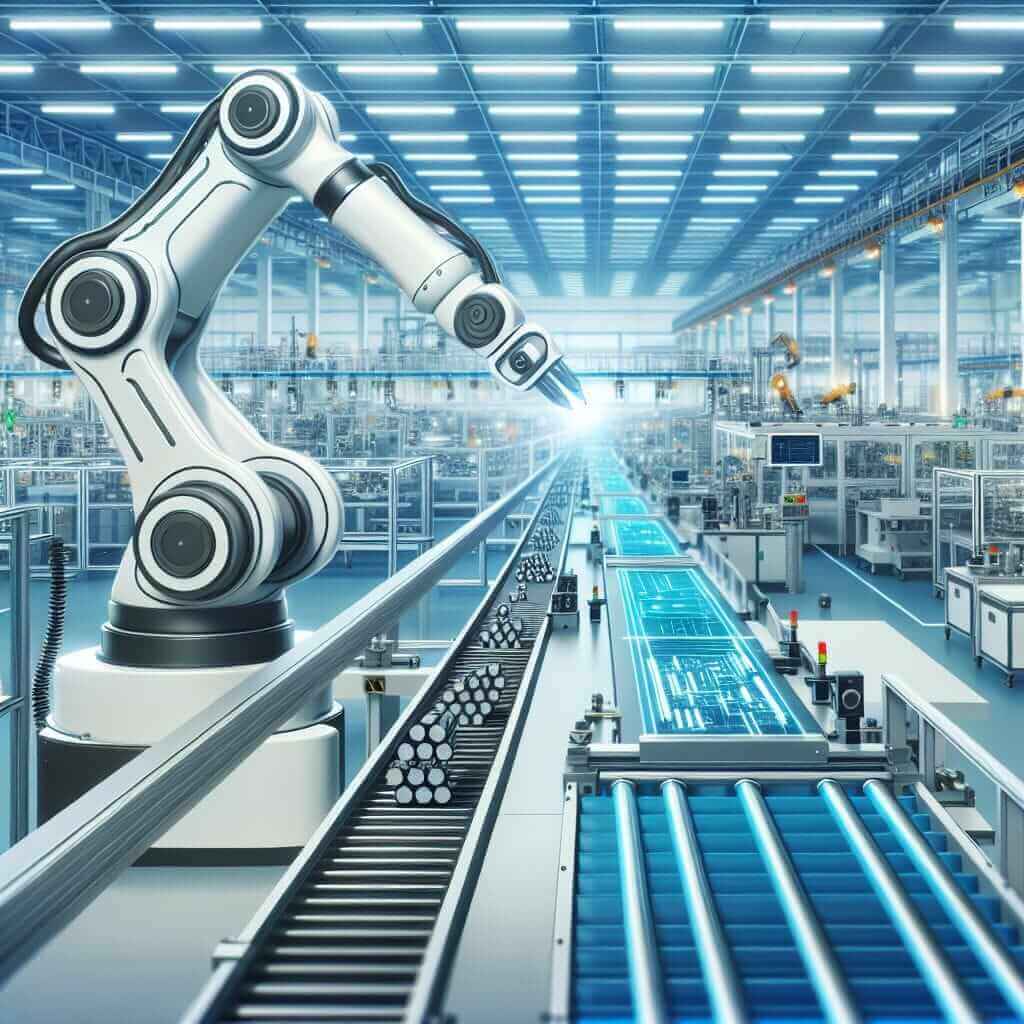The influence of robotics on manufacturing efficiency is a topic frequently discussed in today’s rapidly evolving technological landscape. This subject often appears in IELTS Writing Task 2, requiring test-takers to demonstrate their ability to analyze complex issues and present well-structured arguments.
Here are some potential IELTS essay questions related to this topic:
- To what extent do you agree or disagree that the advantages of using robots in manufacturing outweigh the disadvantages?
- Some people argue that the increasing use of robots will lead to mass unemployment. Others believe that this technology will create new job opportunities. Discuss both views and give your opinion.
- Robots are becoming increasingly prevalent in manufacturing. What are the positive and negative impacts of this trend?
IELTS Essay Sample
Let’s choose the first question to develop into a full essay: To what extent do you agree or disagree that the advantages of using robots in manufacturing outweigh the disadvantages?
Analysis
This question requires you to present a clear stance on whether the benefits of robots in manufacturing outweigh the drawbacks. You should discuss both sides of the argument, providing evidence and examples to support your viewpoint.
Essay
The integration of robots into manufacturing processes has sparked considerable debate, with proponents highlighting increased efficiency and opponents expressing concerns about potential drawbacks. While there are legitimate concerns about job displacement, I firmly believe that the advantages of robotic automation in manufacturing far outweigh the disadvantages.
On the one hand, critics argue that robots will displace human workers, leading to widespread unemployment and social unrest. This concern is not entirely unfounded, as robots can perform repetitive tasks more efficiently and accurately than humans, potentially making certain roles redundant. However, this view overlooks the fact that automation also creates new job opportunities in areas such as robot design, programming, maintenance, and data analysis. Moreover, governments and businesses can mitigate job losses through retraining and upskilling programs, preparing the workforce for the evolving demands of the automated workplace.
On the other hand, the benefits of robotics in manufacturing are undeniable. Firstly, robots significantly enhance productivity and efficiency. They can operate continuously without breaks or fatigue, leading to higher output and faster production cycles. This increased efficiency translates into lower production costs, making goods and services more affordable for consumers. Secondly, robots improve product quality and consistency. Their precision and accuracy minimize errors and defects, resulting in products that meet the highest standards. This is particularly crucial in industries like electronics and pharmaceuticals, where even minor flaws can have significant consequences.

In conclusion, while the concern about job displacement due to robotic automation is understandable, it is essential to recognize the transformative potential of this technology. The benefits of increased efficiency, improved product quality, and the creation of new job opportunities far outweigh the potential drawbacks. By embracing robotics and implementing appropriate policies to support workers, we can harness the power of automation to drive economic growth and improve our quality of life. (Word count: 298)
Writing Tips
- Clearly state your position: Make your stance clear in the introduction and maintain it throughout the essay.
- Present balanced arguments: Discuss both the advantages and disadvantages of robotics in manufacturing.
- Provide evidence and examples: Support your claims with relevant examples from various industries or real-world scenarios.
- Use linking words and phrases: Ensure coherence and flow between paragraphs using appropriate transitions like ‘however,’ ‘moreover,’ ‘in addition,’ etc.
- Use academic language: Avoid informal language, slang, and contractions.
Vocabulary
- Integration (noun) /ˌɪntɪˈɡreɪʃn/: The act of combining two or more things so that they work together.
- Proponents (noun) /prəˈpoʊnənts/: People who speak publicly in support of a particular idea or plan of action.
- Opponents (noun) /əˈpoʊnənts/: People who disagree with a plan or proposal.
- Redundant (adjective) /rɪˈdʌndənt/: Not or no longer needed or useful.
- Mitigate (verb) /ˈmɪtɪɡeɪt/: To make something less harmful, unpleasant, or bad.
- Enhance (verb) /ɪnˈhæns/: To improve the quality, amount, or strength of something.
- Precision (noun) /prɪˈsɪʒn/: The quality of being exact and accurate.
- Transformative (adjective) /trænsˈfɔːrmətɪv/: Causing a major change to something or someone.
- Harness (verb) /ˈhɑːrnɪs/: To control and make use of something powerful.
Conclusion
The impact of robotics on manufacturing efficiency is a multifaceted issue with compelling arguments on both sides. When addressing this topic in your IELTS essay, remember to present a balanced view, provide strong evidence, and use appropriate vocabulary. Practice writing essays on similar topics to improve your ability to articulate your thoughts effectively within the time constraints of the exam. Good luck!